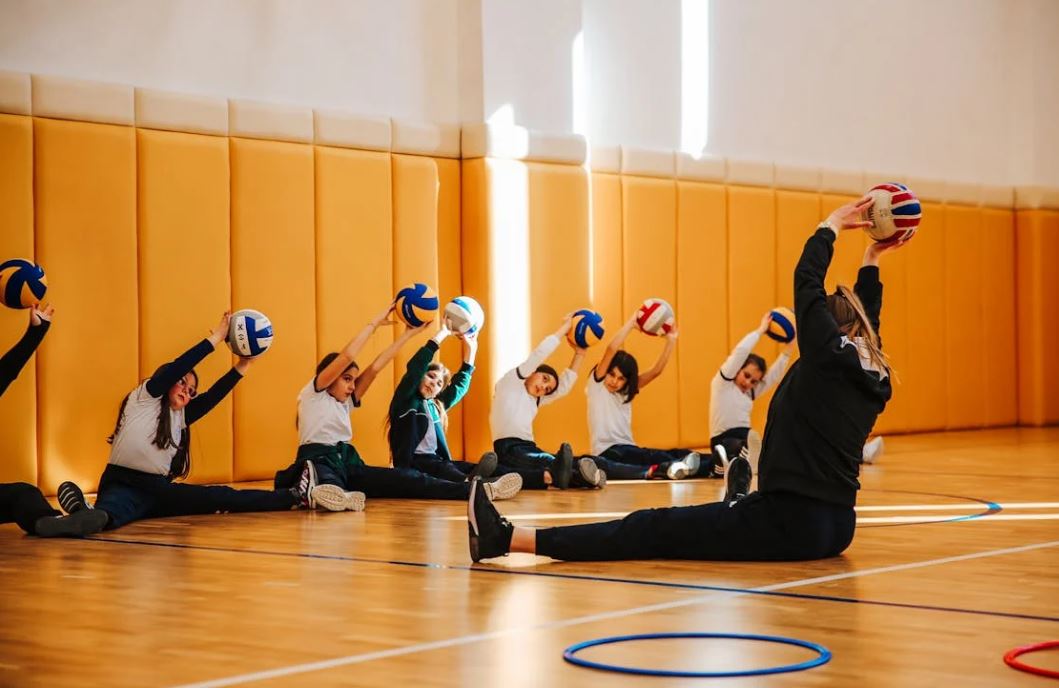Student-athletes juggle personal, academic, and athletic responsibilities while striving to perform exceptionally in each area. Their rigorous coursework, practice schedules, and competitions often leave little time for self-care.
As colleges target success on and off the field, it is important to offer the necessary support for the unique needs of student-athletes. These include academic resources, mental health support, and a thriving environment. Read more to find out how schools can help these students.
Why Student Athletes Need Extensive Support
Due to the pressures of their academic and professional lives, student-athletes face several unique challenges. For this reason, they require extensive support to succeed in every aspect of their lives.
Their demanding schedules allow little time for socializing, rest, and self-care, making balancing difficult. The physical demands of practice and competition can also create risks of injury.
On the other hand, they can also experience stress due to the mental pressure of performing at the college level. Since college athletes travel frequently, their academic progress may be frequently disrupted, increasing the risk of falling behind in their coursework.
Many student-athletes have limited career preparation outside of sports due to missing internships and part-time jobs. Without adequate support, they may struggle to thrive. That is why colleges must consider their needs to increase their chances of success during and after their careers.
Other reasons why student-athletes need support include:
- Financial pressures
- Time management challenges
- Need for mental health support
- Limited free time
Key Ways for Colleges to Support Student Athletes
Colleges play a huge role in the success of their athletes. They must provide adequate support to encourage them to perform better on the field. This support goes beyond merely training them properly. It includes providing mental health support and financial assistance. Here are the key ways colleges can help their athletes.
1. Offering Personal and Professional Development Programs
Colleges can effectively support their athletes by offering programs that help them develop personally and professionally. These programs help athletes develop skills in their preferred sport and prepare them for life beyond the field.
These include financial literacy, leadership, time management, and athletic programs. Networking events, career counseling sessions, and internship opportunities are great ways to help athletes consider entering the workplace after college.
Life skills training helps students become independent and build confidence. It can also teach students valuable skills to grow a business. This way, they can scale challenges on and off the field. By offering these programs, colleges show their interest in the well-being of their athletes.
2. Providing Mental Health Resources
Another way colleges can support their athletes is by providing mental health resources that address their unique challenges. Balancing sports with other aspects of their lives can be daunting, so student-athletes are often stressed, worn out, and anxious.
Colleges can help athletes address their problems in a safe space by offering access to mental health professionals, such as counselors. Workshops on stress management, emotional health, and mindfulness can help athletes handle high pressure and stress.
3. Facilitating Extra-Curricular Activities Outside Sports
Colleges can support their athletes by encouraging students to participate in extracurricular activities outside of sports. This way, they can develop a well-rounded college experience. Schools should facilitate their involvement in clubs, volunteer work, academic societies, and student organizations.
These activities allow student-athletes to explore interests beyond sports, build valuable networks, and develop leadership skills. This way, they can explore other after-school careers besides sports. They also provide the needed breaks from the intensity accompanying sports and academics.
Colleges can help by providing flexible schedules and allowing athletes to attend events without missing out on sports. By facilitating their participation in extra-curriculars, schools help athletes grow in different aspects of their lives.
4. Providing Academic Support
Another important way for colleges to support student-athletes is by providing academic support to meet their unique needs. Many athletes find it challenging to balance sports with their academics. Colleges can help by offering study halls, tutoring services, and academic advising.
These schools can also provide access to specialized academic resources, such as math labs and writing centers, to help athletes. Flexible scheduling and alternate exam periods ensure these students catch up, helping them achieve their academic goals.
5. Giving Student-Athletes Financial Assistance
Offering financial assistance to student-athletes can help ease the financial pressures they face. Scholarships are one of the most direct ways to support athletes in covering their tuition, accommodation, and other expenses.
For athletes without full scholarships, stipends, grants, and need-based aid can help them get important resources. Financial assistance helps athletes cover equipment, travel, and medical expenses. Colleges can also help athletes earn by facilitating name, image and likeness rights. Addressing financial concerns helps students focus on sports and academics.
6. Preventing Discrimination
One helpful way colleges can support their athletes is to prevent discrimination and create an inclusive environment. To this end, these schools must implement anti-discrimination measures and address biases related to race, gender, or ethnicity.
Colleges must organize training for coaches, staff, and athletes on diversity, equity, and inclusion to promote respect. If there are complaints of discrimination, schools should consider Title IX hearings to address and resolve these issues. Colleges should also establish safe systems for reporting discrimination and support networks. This will help student-athletes thrive on and off the field.
7. Creating Mentorship Programs
Mentorship programs that provide guidance, support, and connections are important for student-athletes. Pairing them with experienced mentors, such as alumni, professionals, and coaches, can help them navigate any challenges they may be facing.
Mentors offer career advice, helpful life insights, and emotional support during tough times. Peer mentorship programs also create a sense of community and help athletes explore opportunities beyond sports.
By connecting student-athletes with role models, colleges can help them make informed decisions about their future. This will make them more likely to achieve their full potential in sports and beyond.
Endnote
Due to their challenges, student-athletes need all the support they can get. Colleges can push them further by providing personal and professional development programs, mental health resources, and academic support. They can also facilitate extracurricular activities, offer financial assistance, prevent discrimination, and create mentorship programs.











